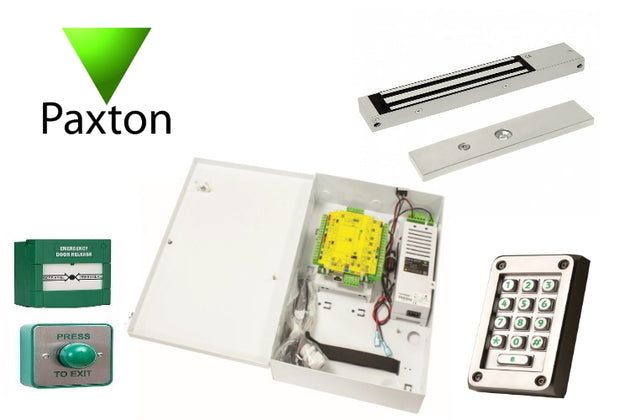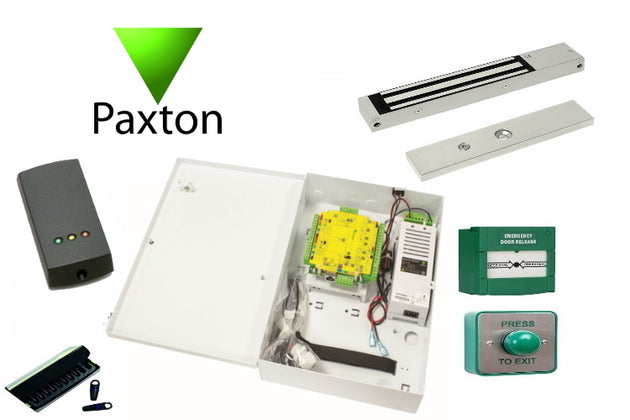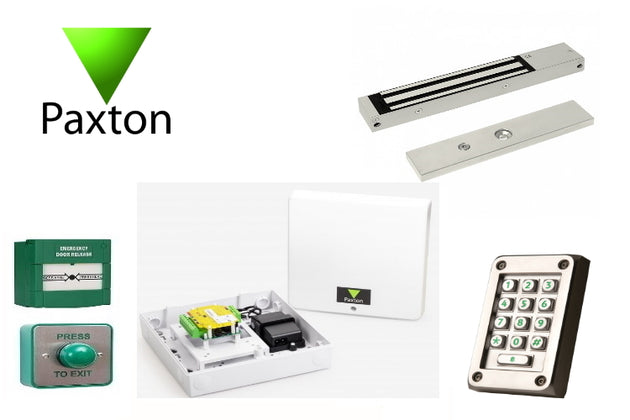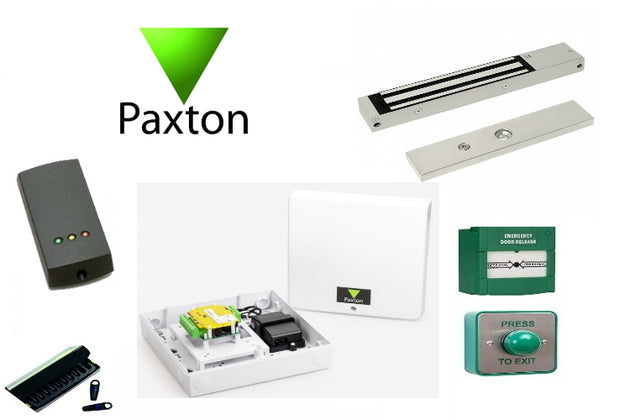Access control systems
Filter and sort
-

Paxton NET2 TCP/IP access control system, access by code
Regular price £820.00The Paxton NET2 TCP/IP access control system provides a secure and reliable way to monitor and control access to your building. This network-based system uses a keypad to allow entry, while an... -

Paxton NET2 TCP/IP access control system, access by keyfob
Regular price £740.00The Paxton NET2 TCP/IP access control system provides a secure and reliable way to monitor and control access to your building. This network-based system uses key fobs to allow authorized entry, while ensuring easy exit... -

Paxton stand alone access control system, access by code
Regular price £490.00The Paxton Switch2 stand-alone access control system is a high-performance and reliable solution for single-entry point security. Designed to keep the door closed at all times, this system features a keypad on the outside and... -

Paxton stand alone access control system, access by keyfob
Regular price £460.00The Paxton Switch2 stand-alone access control system is a high-performance and reliable solution for single-entry point security. Designed to keep the door closed at all times, this system utilizes a fob reader on the outside... -

Stand alone access control system with keypad
Regular price £280.00The Stand Alone Access Control System with Keypad is the ideal solution for easily managing building access. This comprehensive system features a keypad with a built-in RFID card reader, allowing you to control entry through...
Access control systems are a fundamental component of modern security strategies, providing a robust and flexible solution to the challenge of protecting people, assets, and information. These systems are used in a wide range of environments, from corporate offices and manufacturing plants to schools, hospitals, and government buildings.
The primary function of an access control system is to limit access to specific areas. This is achieved through a variety of authentication methods, which can include anything from traditional keys and cards to digital passwords and biometric identifiers such as fingerprints or facial recognition. The level of security can be tailored to the needs of the organization, with higher-risk areas typically requiring more stringent authentication. In addition to restricting access, these systems also provide a detailed record of who has entered and exited a particular area and when. This data can be invaluable for a variety of purposes, including tracking employee attendance, investigating security incidents, and ensuring compliance with regulatory requirements.
Modern access control systems often integrate with other security measures to provide a comprehensive approach to protection. For example, they may be linked with video surveillance systems to provide visual confirmation of who is requesting access, or they may be connected with alarm systems to trigger alerts if unauthorized access is attempted. However, while access control systems are an essential tool in the security arsenal, they are not infallible. Regular maintenance and updates are crucial to ensure their effectiveness, and organizations must also consider other aspects of security, such as employee training and physical security measures.
Furthermore, as technology continues to evolve, so too do the capabilities of access control systems. Advances in fields such as artificial intelligence and machine learning are opening up new possibilities for enhanced security and efficiency. For instance, predictive analytics can be used to identify patterns and trends in access data, potentially allowing for the early detection of security threats.
Finally, access control systems play a critical role in maintaining the safety and security of various environments. By limiting access to specific areas, monitoring entries and exits, and integrating with other security measures, they provide a robust and flexible solution to the challenge of protecting people, assets, and information. As technology continues to advance, it’s likely that these systems will become even more sophisticated and integral to our daily lives.





